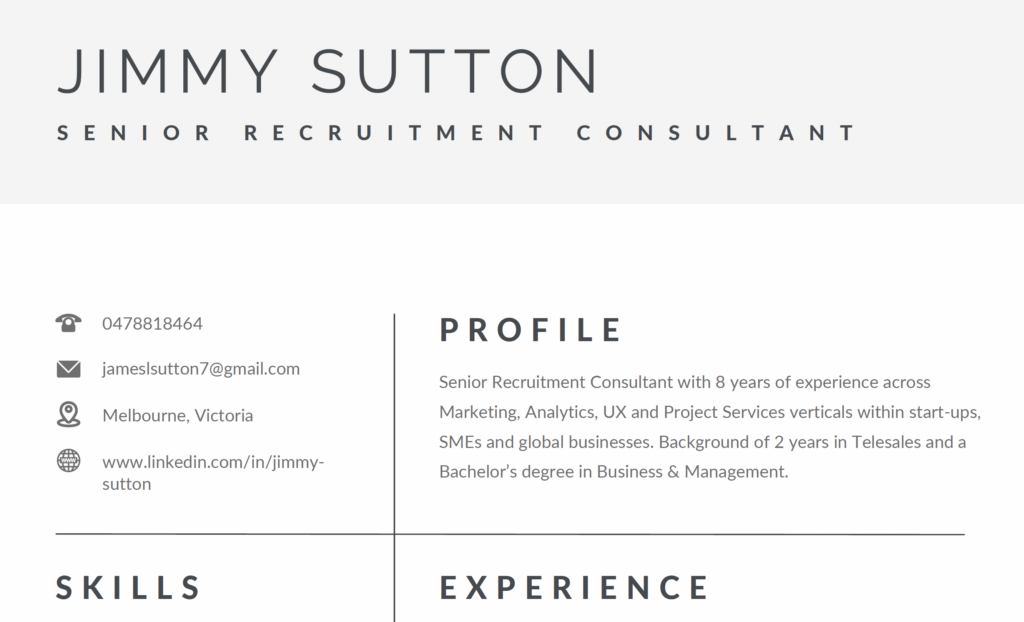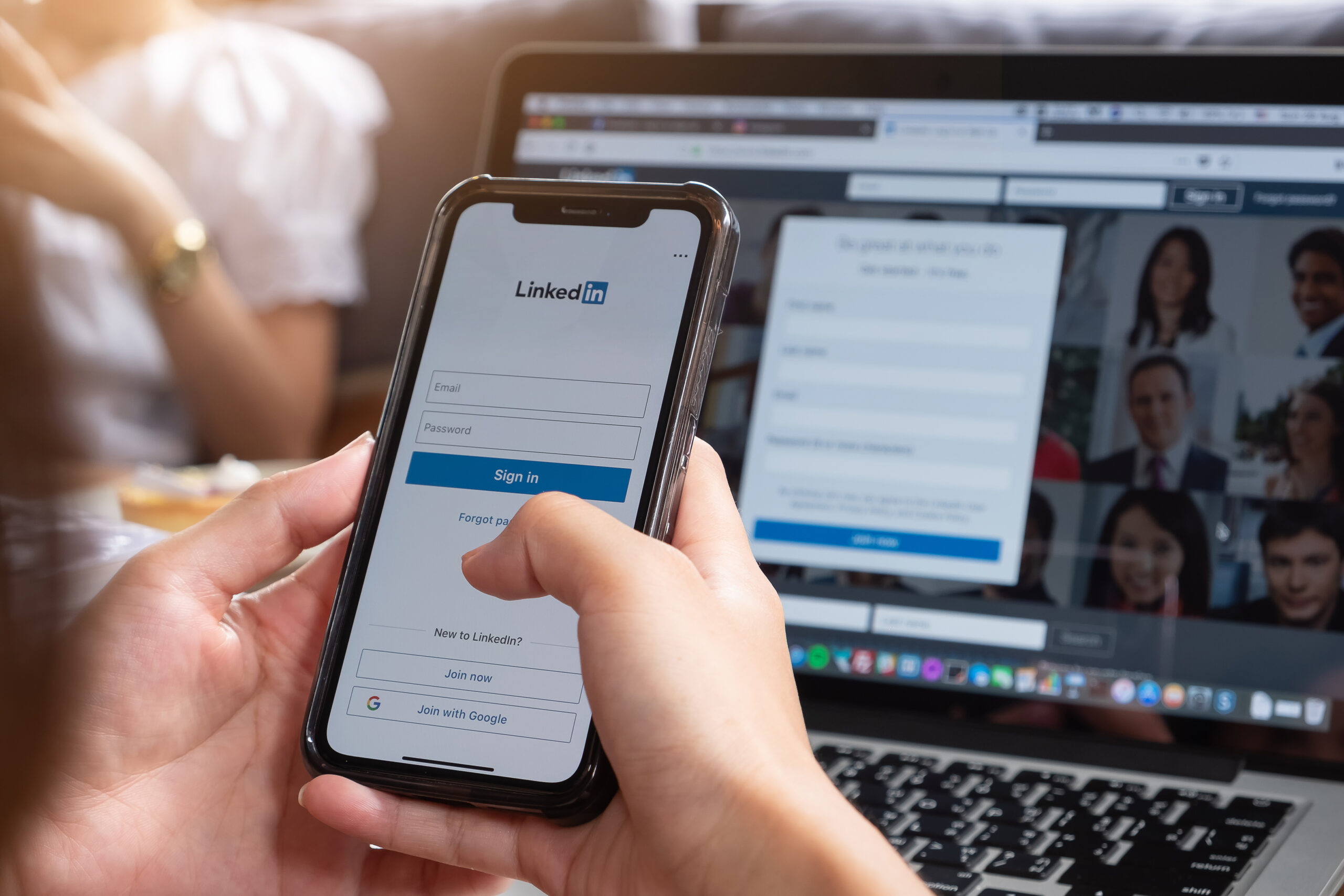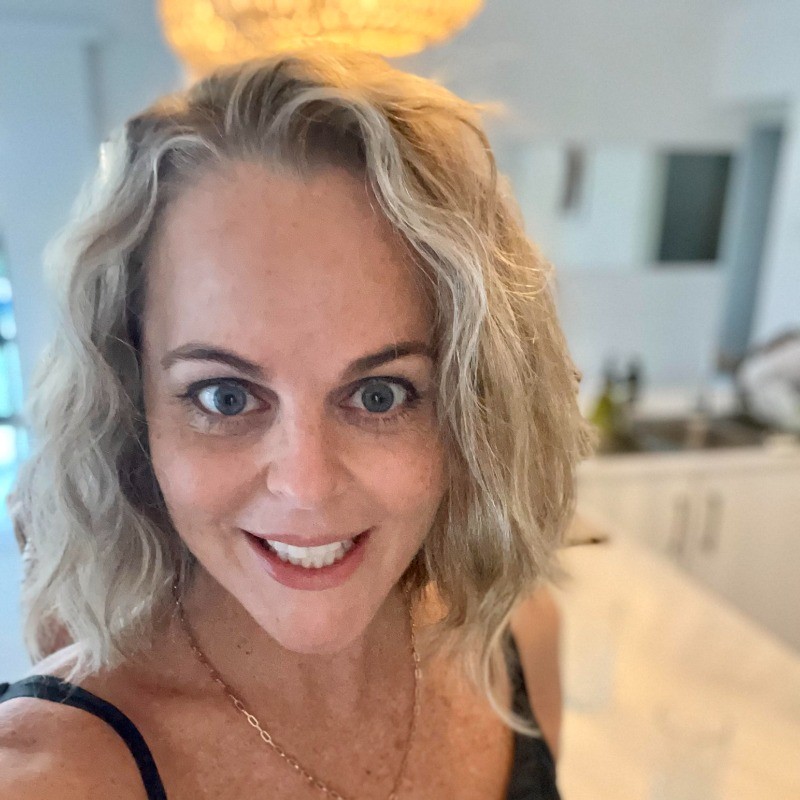Ye Olde resume habits. Has it been years since you’ve needed to update your resume? Or maybe you’re not hearing back from job applications?
I’ve been recruiting in England and Australia for 8 years, so I’ve seen my fair share of resumes. I’ve lost count of how many great candidates I speak to who then send me a long, waffly resume sometimes with a generic “dear HR” cover letter. This could be the difference between getting an interview for that dream job or not.

Here are a few tips on how to modernise your resume:
1. Avoid “Curriculum Vitae”.
A pet peeve of mine is when I see “Curriculum Vitae” at the top of a CV. I can’t see any point in it unless you’re an aspiring Latin Teacher—then I’ll let you off. You don’t even need the letters CV or resume—your name is all you need.
2. You don't NEED a cover letter, but if you want to use them make sure you do this.
I think cover letters have become outdated, and I’m not alone. Here’s a poll we did with our LinkedIn community.

A generic, templated cover letter isn’t the way to start your long-term career at any reputable organisation.

A recruiter should have a good understanding of your skills and will have a direct relationship with the hiring manager so they can highlight why you’re a great fit for the role. And if you’re applying directly online, a succinct, outcome-driven resume tailored to that role will show the hiring manager the value you can add to their business.
If you’re adamant that you want to carry on using cover letters, it’s crucial that each one is tailored to that specific job and that you double check your spelling and grammar! I get a lot of cover letters that talk about how excited people are to work at Aquent or referring to a completely different job – this just shows a lack of attention to detail and could be enough to deter a hiring manager.
3. Keep your resume succinct. Information overload is very real.
I often think “this candidate looks good but if only I knew their date of birth and exact home address!” The city or general area that you live in is plenty and nobody should ever have an ideal age range in mind when they’re recruiting. It perpetuates the ageism debate.
I saw a CV recently listing how many kids they had—I was happy for them, but it’s really not necessary. Try to keep it to top-line, directly relevant information only.
4. How's your LinkedIn profile looking?
It’s rare that a candidate doesn’t have a LinkedIn profile nowadays but if you don’t, that’s step one.
Once you’ve built your profile on LinkedIn, linking and aligning this to your resume will increase the chances of you getting a call back from a job application. Recruiters spend all day on LinkedIn, so an updated profile showcasing your skills with your status set to “open to work” will get plenty of bites.
5. Formatting on your resume matters.
If the research that says recruiters only spending 7 seconds to decide whether to keep on reading is true, then clear formatting of your resume is crucial.

I needed to update my resume recently for my visa extension (and for no other reason if my manager is reading!). I used Canva as they have some great, free CV templates that are easy to edit. You’ll see the front page is clear and concise with a succinct intro paragraph which will, hopefully, act as a hook and keep people reading. The only thing it wouldn’t let me do is have my Linkedin profile as a hyperlink.
Rule of thumb for me is 2-3 pages long with a focus on your last 5 years of experience. This should be in chronological order and the amount of info on a sliding scale. Personally, I’m not the biggest fan of a 1-pager unless maybe you’re a freelancer or in a creative role and you have a website or folio to back it up. My colleague, Kate Verran, has written a blog with more tips on portfolios and building UX Case Studies.
6. Personalise the tone of your resume to you.
Finding the right cultural fit is critical for you and the hiring manager.
Resumes don’t need to be super formal anymore, so showing your personality is a great way to stand out from the crowd. This can be as little as listing your passions outside of work. I sent a resume to an agency client of mine a couple of months ago who came back with this response:

Obviously, you still need the right skillset, but it’s a sign to the hiring manager that you might get along well, giving you a better chance of securing an interview. Plus, it’s a great way to build rapport/break the ice when you meet
7. Focus on your outcomes & deliverables.
Your focus in your role responsibilities should be based on outcomes and deliverables, using as many metrics as you can (e.g. $, %). This could be $ cash savings from a project, % of increased efficiencies or click-through, conversions, etc. Results of your projects/campaigns instantly show the value you can add to a new business. Even adding details like $ of budgets you’ve managed will stand out.
Utilise Google’s XYZ formula (Accomplished [X] as measured by [Y], by doing [Z]) to help you structure your responsibilities and make sure to use bullet points. A long, wordy resume that might as well be copying and pasting a job description can give the impression of poor communication skills. I’ve had instances in the past where the length of a resume put a hiring manager off from interviewing someone.
8. Use SEO to your advantage.
I currently recruit in the Marketing industry, and it seems like job titles are constantly changing and tech is obviously always evolving. This makes optimising your resume with keywords important. Not only from an SEO-perspective but to give the hiring manager confidence in your abilities.
This could be broader terms like “MarTech” or maybe specific tools like “DV360” or key soft skills like “stakeholder engagement”. Optimising your resume with keywords will add weight to your resume and help you become more visible.
If you’re applying for a role directly then larger businesses may use tracking software (ATS) to shortlist candidates—I personally think this is a terrible way of recruiting, almost as bad as those automated video screening interviews that seem to be popping up. What an amazing way to build rapport! Not!
Anyway… even if you’re not applying online, having an optimised resume will help you be found by recruiters on LinkedIn and Seek who will be using Boolean searches to source candidates which revolve around key words. Here’s a deeper dive into optimising your CV.
9. You don't need to include References… or do you?
My colleague, Rosie McAlister, recently took a poll on LinkedIn about reference details on a CV. This one’s probably more just my personal preference, but I don’t think there’s any need to put reference details on a resume nowadays—who would be contacting a reference before speaking with a candidate? Unless it’s a sneaky recruiter who needs to hit some KPIs. Even “references upon request” sounds a little old fashioned. Who talks like that?
I hope some of these tips help! Give me a shout if you’re planning to update your resume or maybe keeping an eye on the market, as I’m always happy to have a chat.
Latest.

Temp-to-perm is the best way to hire today.
Hiring Insights

How to keep top talent: Strategies for successful onboarding
Hiring Insights, Ask Aquent, Training Resources

AI and the job search: What’s changed and how to come out on top
Technology, Job Seeker, Industry Trends






